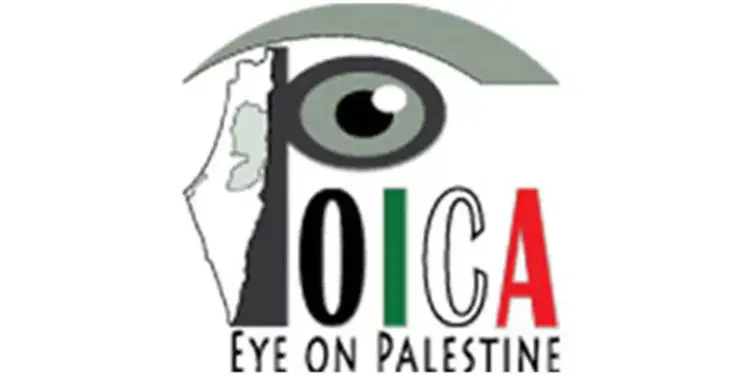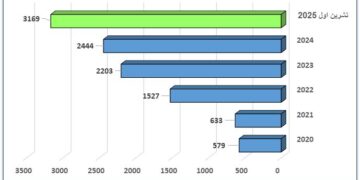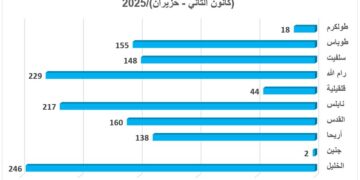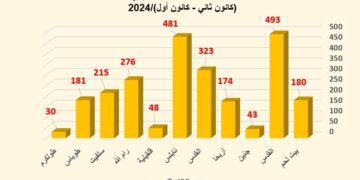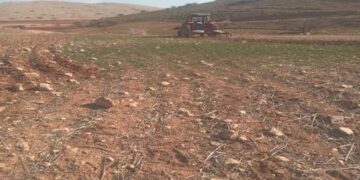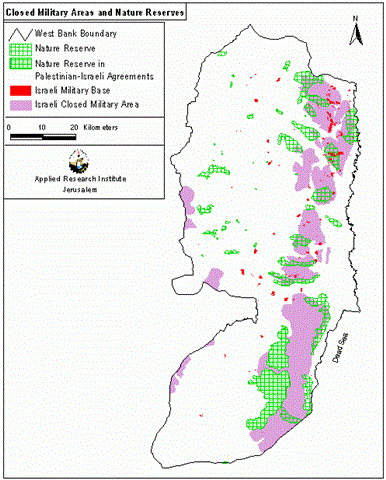Despite the holiness of olive trees in Palestine and despite the fact that olive picking season is a season of cooperative work among Palestinians, Jewish colonists poisoned the festive atmosphere of the season by carrying out a number of orchestrated attacks on Palestinian villagers while olive picking. Such attacks resulted in the killing of one villager and injuring many from the Nablus village of Beit Foreek. It is worth mentioning that this is the second attack of its kind as the settlers killed another Palestinian and mutilated his body in the same place a year ago.
Khillat Al Ward – Beit Foreek, 10 km to the east of the city of Nablus, is where the latest assault took place. The population of the village stands at about 9000 inhabitants in an area of about 47000 dunums. About 18000 dunums of this land were designated as closed military areas used for Israeli army's training purposes in addition to the confiscation of tens of thousands of dunums used for the establishment of the nearby Elon Moreh and Itmar settlements; see map .
The incident took place on the 17th of October 2000 when a number of Palestinian villagers accompanied with their families headed to Khillat Al Ward to pick olives. While they were busy picking olives they were surprised to be hit by a stream of bullets fired by settlers from the nearby Jid Oneim settlement. The attack left one martyr and there critically wounded villagers. The martyr was Fareed Musa Issa Nasasreh (26 years old and father of two) while the injured included the following:
-
Hamdy Mahmoud Issa Nasasreh. He was 43 years old and a father of six. He was shot in the head and the shoulder.
-
Khalid Issa Ahmad Nasasreh. He was 35 years old and a father of four. A bullet in the knee hit him.
-
Malik Mahmoud Ahmad Nasasreh. He was 24 years old and was married only recently. A number of bullets hit him in the kidney, right lung in addition to his right hand. He is still in the Intensified Care Unit.
The shooting left the villagers in a panic as some of them tried to protect the children while others ran to carry the wounded and the dead. One of the villagers had a cellular phone through which he called an ambulance and the relevant Palestinian authorities to help ease the situation and help the rest of the besieged villagers. An hour passed before the ambulance reached the village. It parked about 1 kilometer away because there was no road it can use to reach the injured and the dead, which compelled the villagers to transport the injured using donkeys and horses to the ambulance.
Israeli army was present at the main road, yet it did not intervene to stop the aggression of the colonist. In contrast, it declared the area as a closed military area, thus preventing the ambulances of using the main road to reach the hospital. Instead, the ambulances were forced to use a sandy mountainous road to by-pass all military check points and reach the hospital. Using these roads added an additional 15 kilometer to the trip !!!. The ''closed military area'' status also gave cover for the settlers to withdraw safely without being followed by the villagers.
This aggression is yet another attack in a series of attacks that were carried out by Jewish settlers and authorities throughout the years. For example, the settlement of Jid Oneim was established in 1997 as an extension of the settlement of Yitamr after Israeli authorities confiscated lands from the villages of Beit Foreek, Awerta and Yanoon. Two thousand olive tree-filled dunums were confiscated from Beit Foreek alone for that purpose.
Another confiscation took place in 1998 when 20 olive trees were uprooted under the pretext that the land in which there were in was close to a sandy road used by Jewish settlers on Saturdays !!. Another victim fell during the olive season of 1999 when a group of settlers attacked the elder Muhammad Suleiman Khatatbeh (75 years old). The colonist tortured, burnt the hands and the legs of Mr. Khatatbeh before crushing his skull using a big stone. He died on the spot. Investigation into the attack revealed the names of attackers, yet no action was taken against them.
This most recent attack resulted in a number of agricultural damages that included preventing the villagers from attending to the needs of a 1500-dunum land that belongs to about 170 families. Also, it has been estimated that material losses in this location might reach $600 thousand if picking olives was not possible. Furthermore, in case those attacks continue, it would be possible that the settlers would take advantage of the situation and take possession of the land to expand their settlement.
Prepared by
The Land Research Center
LRC


